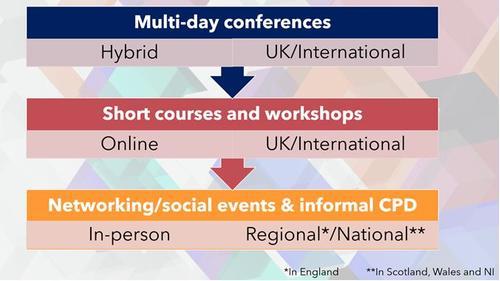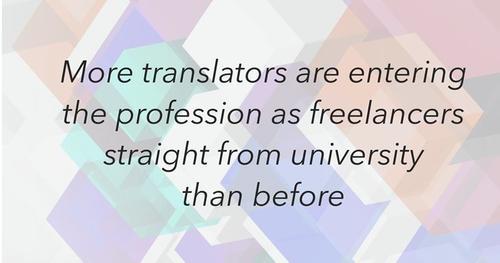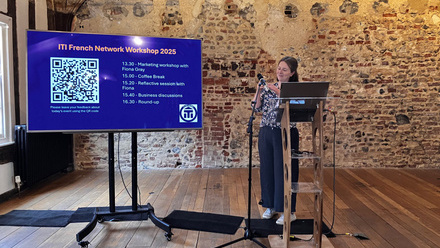CPD: Changing professional development
Lloyd Bingham explores the latest trends in CPD.
No longer does CPD stand for just continuing professional development, but now it’s changing professional development too. The CPD scene has changed dramatically and rapidly… for the better as well. In terms of content: from a mid-2010s perhaps overfocus on soft skills, back to a 2020s balance between core skills and business skills. In terms of format: from predominantly in person before Covid, to solely online during Covid, to a hybrid balance post-Covid.
From a member’s perspective, it’s clear that ITI has recognised this and adapted accordingly, forming a three-layer model, even if not by design: the more regular workshops previously held in Milton Keynes are now online, accessible to all across the world; the conference is now hybrid, giving the option of attending in person to capitalise on networking opportunities or watching and engaging online to enjoy the temporal and financial savings; and many of ITI’s geographical, subject and language networks are now largely returning to in-person events.

Why is this important? Because, in keeping with the theme of the recent ITI conference – embracing change, emerging stronger – it’s important to identify trends and developments and respond to them, so we stay ahead of the game rather than fall behind. The changes to the content and format of CPD in recent years bring opportunities for translation and interpreting professionals to future-proof their career.
With this refocus on developing core skills, we have the chance to hone skills that machines are unable to. It’s no secret the quality of machine translation output is improving, and post-editing tasks are replacing human jobs. If we want to continue to translate rather than post-edit, we need to do what technology can’t. CPD is more plentiful and accessible than ever, yet it is up to us as individuals to seize those opportunities, to develop hard and soft skills alike, to become experts in our field, to become proficient writers or efficient interlocutors.

There is another perceived trend that requires our attention: more and more translators are entering the market straight after graduating than before. Whereas many professionals will have cut their teeth working in-house in years gone by, those opportunities – vital to developing hard skills in practice – are much thinner on the ground nowadays. Ultimately, it doesn’t matter whether this straight-to-freelance tendency is occurring through necessity or volition – we need to respond to this trend regardless, by supporting new entrants in a way that mirrors the opportunities to develop hard skills that many established professionals had before starting their own business.
There are two things that could help here: work placements and mentoring. Work placements would involve a student spending perhaps a few hours a week for a month or two with an established professional, working on some texts that they then receive feedback on from the practitioner. This would involve ITI networks working (more) closely with the universities in their jurisdiction to pair students with members. Mentoring is similar, but more suited post-graduation and would incorporate more texts over a longer period. Structured schemes are already in place through certain ITI networks; some individual professionals even offer them on their own initiative.
As a recently elected ITI Board member, I intend to look at the schemes already in place and explore whether they can be exported to other networks. Perhaps we could come up with a best-practice model that other networks could readily adopt. I am optimistic, with a certain self-awareness of naivety, that we can make progress here. I’m also conscious of the time and financial investment required from individual practitioners and network volunteers. I know what I’m saying here is a big ask. But helping new professionals develop counts towards your own professional development too. And there’s nothing more professionally rewarding that passing on your knowledge and expertise and seeing the next generation of our profession succeed.






